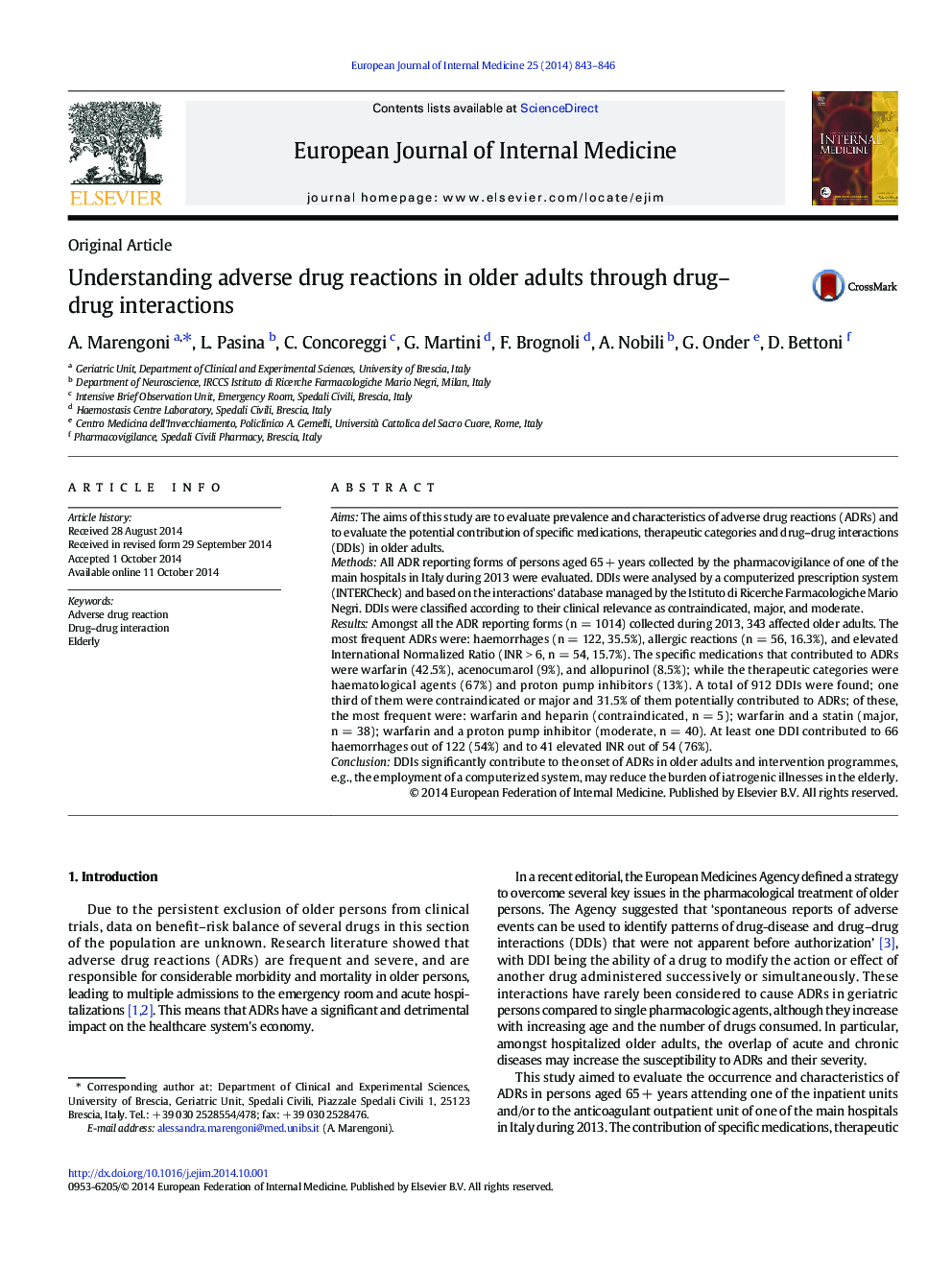| کد مقاله | کد نشریه | سال انتشار | مقاله انگلیسی | نسخه تمام متن |
|---|---|---|---|---|
| 3466101 | 1596551 | 2014 | 4 صفحه PDF | دانلود رایگان |
• Specific medications mostly contributed to ADRs in older adults.
• A large number of DDIs were found in the therapeutic regimens of the patients.
• About one third of DDIs were contraindicated or major.
• At least one DDI explained 40% of the ADRs classified as requiring hospitalization.
• At least one DDI explained more than half of haemorrhages and elevated INR.
AimsThe aims of this study are to evaluate prevalence and characteristics of adverse drug reactions (ADRs) and to evaluate the potential contribution of specific medications, therapeutic categories and drug–drug interactions (DDIs) in older adults.MethodsAll ADR reporting forms of persons aged 65 + years collected by the pharmacovigilance of one of the main hospitals in Italy during 2013 were evaluated. DDIs were analysed by a computerized prescription system (INTERCheck) and based on the interactions' database managed by the Istituto di Ricerche Farmacologiche Mario Negri. DDIs were classified according to their clinical relevance as contraindicated, major, and moderate.ResultsAmongst all the ADR reporting forms (n = 1014) collected during 2013, 343 affected older adults. The most frequent ADRs were: haemorrhages (n = 122, 35.5%), allergic reactions (n = 56, 16.3%), and elevated International Normalized Ratio (INR > 6, n = 54, 15.7%). The specific medications that contributed to ADRs were warfarin (42.5%), acenocumarol (9%), and allopurinol (8.5%); while the therapeutic categories were haematological agents (67%) and proton pump inhibitors (13%). A total of 912 DDIs were found; one third of them were contraindicated or major and 31.5% of them potentially contributed to ADRs; of these, the most frequent were: warfarin and heparin (contraindicated, n = 5); warfarin and a statin (major, n = 38); warfarin and a proton pump inhibitor (moderate, n = 40). At least one DDI contributed to 66 haemorrhages out of 122 (54%) and to 41 elevated INR out of 54 (76%).ConclusionDDIs significantly contribute to the onset of ADRs in older adults and intervention programmes, e.g., the employment of a computerized system, may reduce the burden of iatrogenic illnesses in the elderly.
Journal: European Journal of Internal Medicine - Volume 25, Issue 9, November 2014, Pages 843–846
